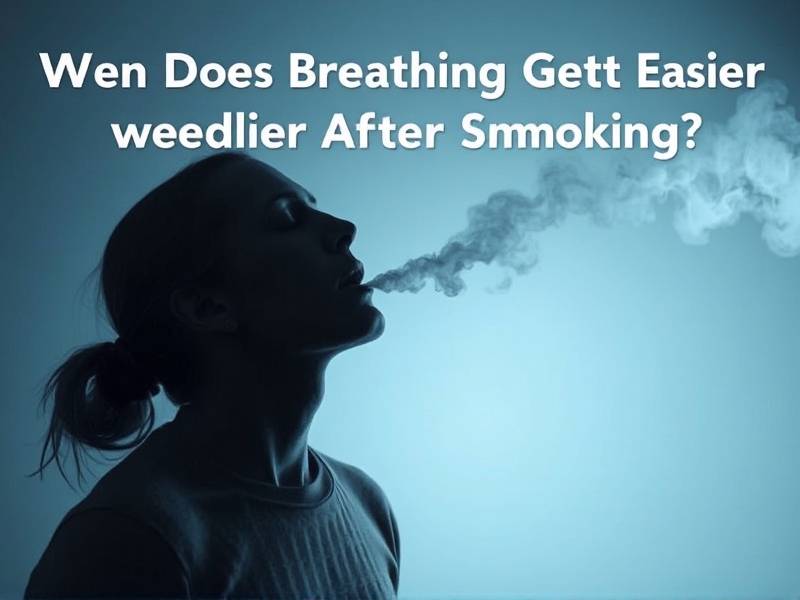When Does Breathing Get Easier After Quitting Smoking?
The Journey to Easier Breathing: A Timeline After Quitting Smoking
Introduction: Quitting smoking is a significant step towards improving one's health, and one of the most immediate benefits smokers often look forward to is the improvement in their breathing. But when does breathing actually get easier after quitting? Let's explore this journey and understand the timeline for this change.
Understanding the Immediate Impact

1. The First Few Days: In the initial days post-quit, many smokers experience a noticeable difference in their breathing. This is because the body starts to eliminate carbon monoxide, which reduces oxygen levels in the blood. As the carbon monoxide leaves the system, you might feel more energetic and find it easier to breathe.
2. The First Week: Within a week of quitting, your lungs will begin to clear out mucus and debris that have accumulated due to smoking. This can lead to an improvement in lung function and a feeling of lighter breathing.
The Role of Nicotine Withdrawal
3. The First Month: During this period, your body continues to heal from the damage caused by smoking. You may still experience some shortness of breath due to nicotine withdrawal, but many people report feeling significantly better than before they quit.
4. The First Three Months: After about three months, your lungs should have cleared out much of the mucus and tar that accumulated during years of smoking. You might notice a substantial decrease in shortness of breath and an increase in lung capacity.

Long-Term Improvements
5. One Year Post-Quit: One year after quitting, your lungs will continue to improve as they repair themselves from past damage. Breathing should be much easier than it was when you smoked, and you might notice fewer respiratory infections or allergies.
6. Five Years Post-Quit: At this point, your risk of heart disease decreases significantly compared to when you were smoking. Your lungs are likely functioning at near-normal levels, leading to even easier breathing.
7. Ten Years Post-Quit: After ten years without smoking, your risk of lung cancer is reduced by half compared to that of continuing smokers. Your overall health continues to improve, and breathing remains effortless for most people.
The Importance of Staying Smoke-Free
It's important to note that while quitting smoking leads to significant improvements in lung function and breathing over time, these benefits can be reversed if you start smoking again. Staying smoke-free is crucial for maintaining these health improvements.
Conclusion: The journey towards easier breathing after quitting smoking is gradual but well worth it. Understanding that improvements occur over time can help keep motivation high during those challenging first few months post-quit. Embrace each stage of recovery as a step towards better health and a life filled with more comfortable breaths every day.
